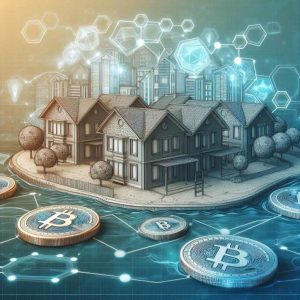 Property transactions are often complex and time-consuming. From verifying ownership to completing legal formalities, the traditional process involves multiple layers that can slow things down. Blockchain technology, known for its transparency and security, has the potential to revolutionize real estate transactions globally, including in Costa Rica.
Property transactions are often complex and time-consuming. From verifying ownership to completing legal formalities, the traditional process involves multiple layers that can slow things down. Blockchain technology, known for its transparency and security, has the potential to revolutionize real estate transactions globally, including in Costa Rica.
Costa Rica’s real estate market, particularly in Guanacaste real estate, is a booming sector that could benefit greatly from blockchain integration. This emerging technology could simplify property ownership verification and transfer processes, attracting more regional investors.
What Is Blockchain in Real Estate?
Blockchain is a decentralized digital ledger that securely records transactions across multiple systems. It eliminates the need for intermediaries, gaining traction in various industries. For real estate, blockchain ensures that property records are accurate, tamper-proof, and easily accessible.
How It Works for Property Deeds
Here’s how blockchain could work for property ownership and deeds:
- Recording Transactions: Each property transaction is recorded as a digital “block.” This block is then added to a chain of previous transactions, forming a tamper-proof history.
- Smart Contracts: Blockchain allows the use of smart contracts. These are self-executing agreements where terms are written into the code. They ensure secure and automatic property transfers once conditions are met.
- Access to Information: Buyers and sellers can access property records instantly. This eliminates the need for tedious manual verification processes.
Why Blockchain Is a Game-Changer for Costa Rican Real Estate
Costa Rica’s current system for managing property deeds is effective but can still face inefficiencies like bureaucratic delays or disputes over ownership. Blockchain could address these challenges in the following ways:
- Transparency: All property records on the blockchain are publicly available, reducing the chances of fraud.
- Efficiency: Blockchain eliminates the need for extensive paperwork. Property transfers could happen in minutes instead of weeks.
- Cost Reduction: Fewer intermediaries mean lower transaction costs, making real estate more accessible to locals and international buyers.
Impact on Guanacaste Real Estate
The Guanacaste region, known for its beaches and growing development, is a hot spot for investors. Blockchain could make it easier for international buyers to verify property details and complete transactions remotely. This could further boost the region’s appeal, making Costa Rica a global leader in real estate innovation.
Challenges to Blockchain Adoption in Real Estate
While blockchain has clear advantages, its adoption in Costa Rica faces some hurdles:
- Regulatory Framework: The government must establish clear guidelines for blockchain use in property transactions.
- Education and Awareness: Many stakeholders, including lawyers and real estate agents, need training to understand and use this technology.
- Initial Costs: Implementing blockchain systems requires investment in infrastructure and software.
The Future of Real Estate in Costa Rica
Blockchain integration isn’t just a futuristic concept; it’s necessary for countries aiming to modernize their real estate sectors. In Costa Rica, it could:
- Enhance trust among buyers and sellers.
- Streamline transactions in high-demand areas like Guanacaste.
- Position the country as a leader in sustainable and tech-driven development.
As Costa Rica continues attracting global attention for its natural beauty and investment opportunities, adopting blockchain technology could be the next step in ensuring its competitive and secure real estate market.
READ ALSO: Important Facts to Know about Sensible Landscaping Investments
Conclusion
Blockchain has the potential to reshape property ownership and transactions in Costa Rica. Its transparency, efficiency, and security make it a promising solution for modernizing the real estate sector, particularly in regions like Guanacaste. While challenges exist, the benefits far outweigh the obstacles, paving the way for a future where buying property is as simple as a few clicks.

